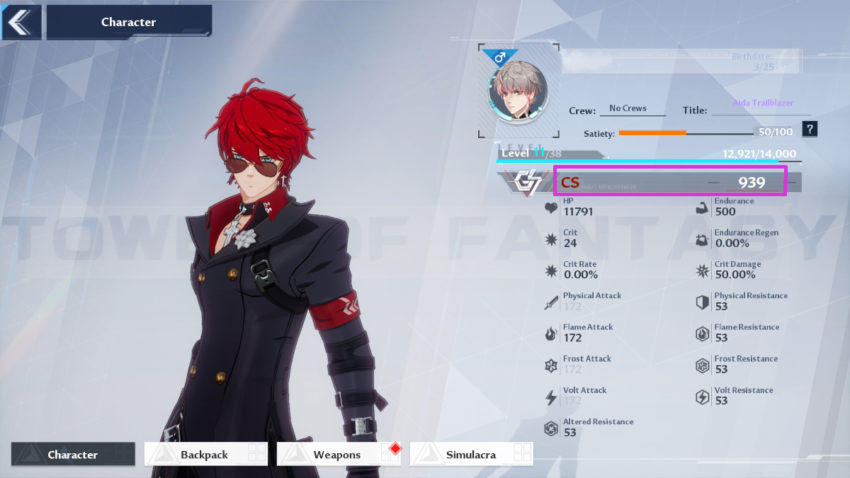Considering what the little Tower of Fantasy CS mean in Tower of Fantasy meter is about? In Tower of Fantasy, there are various shortened forms used to mean different components of the game. One of the primary ones that players will experience is the Tower of Fantasy CS detail. Down underneath, we’ll go over precisely very thing it implies.
Pinnacle of Fantasy is a common open-world RPG that can best be portrayed as a contender that is prepared to impede the huge Genshin Impact 3.0 update. It offers up an anime-centered workmanship style, speedy and continuous battle, tower of fantasy codes and a lot of investigation across a virtual world.
What does CS mean in Tower of Fantasy?

At the point when you open your personality’s profile in Tower of Fantasy, you can see a rundown of details that shows the important qualities (and once in a while shortcomings) of your ongoing person construct. One detail sits over all others, condensed as CS. This means ‘Battle Strength’ and generally decides the battle preparation of your personality against the encompassing dangers of the world. It is a total score of all your details and stuff, comparative in capability to such scores in different games — for instance, Colossus Arms complete iLevel in World of Warcraft rings a bell. This generally implies that the higher you can get your CS score, the better.
CS utilized for in Tower of Fantasy
While it addresses no innate power all alone, your CS score fills in as a check of what the power level of your personality is with a given loadout. Some satisfied in the game will give you a CS score proposal or even a prerequisite prior to permitting you to take part. For instance, it is a proportion of player power with regards to deciding PVP strength. Then there are some PVE prisons dispersed all through the game, which have CS score proposals before players (or gatherings) even set foot in them.
Expand CS in Tower of Fantasy
There is a basic and direct approach to expanding your CS, Voyager Engine which all by itself ought to be one of your objectives during interactivity. To bring your CS up in Tower of Fantasy, you should find and prepare better weapons and stuff, as well as level your personality and your weapons endlessly further. This thus will all impact your absolute CS, and hence raise the score on your personality’s profile.

Why is Tower of Fantasy so famous?
Since Tencent spent a great deal of $$$ to work everything out. It’s showcased as “Genshin-executioner”, CS mean in Tower of Fantasy clearly it’s exceptionally advertised up the present moment, I’ve attempted it and it’s meh. Story seems like cop out right out of genshin, the disturbance, secret request attempting to do obscure poop yadda. Moves of activitys don’t appear to be smooth by any means, numerous NPCs need character and pizazz that Genshin NPCs have, journeys are very MMOish and unacceptable, puzzles are again exceptionally weak and there’s undeniably less chests to go around, particularly investigating more uncommon spots and such.
For what reason is it significant for a dream story to happen in a dreamland like Game of Thrones, or Lord of the rings, and so on.?
- However, there are quite a few dreams which happen in what should be “our” reality. They are characterized as “Low Fantasy” therefore.
- The most renowned and generally clear of them these days is JK Rowling’s Harry Potter series, in which sorcery is concealed on Earth, and hid from non-otherworldly individuals. Yet, there are numerous that don’t occur on a different universe or aspect. Jim Butcher’s Harry Dresden series is an incredible model. Mercedes Lackey has various series set in the advanced world: Diana Tregarde, Bedlam’s Bard, CS mean in Tower of Fantasy and The SERRAted Edge series. Saunders Anne Laubenthal’s single novel Excalibur! was set in contemporary Mobile, Alabama.
- And afterward there are dream books that mix the two, having current contemporary characters going from their own reality to a dreamland and back. The Narnia stories by CS Lewis and L. Blunt Baum’s Wizard of Oz series fall into that classification.
















Leave a Reply